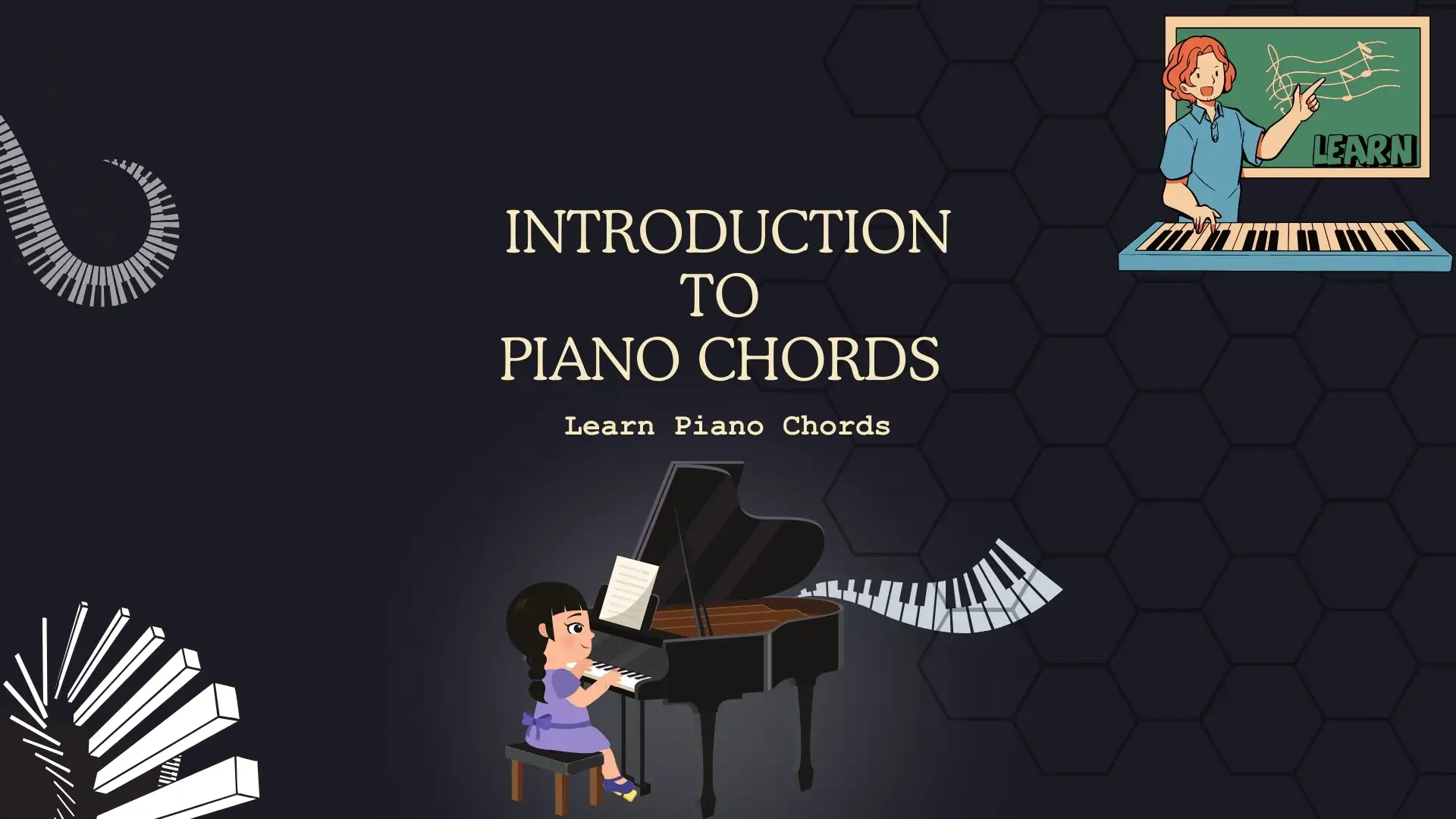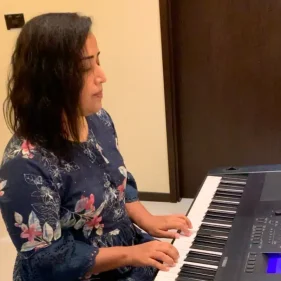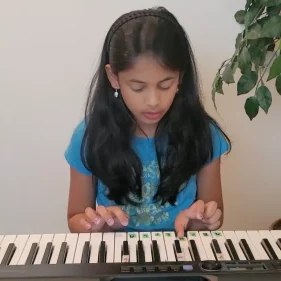Who doesn’t love the sound of a piano? Who doesn’t love to PLAY the Piano? Fine, I’ll answer that- Everyone utmost. Singers or even the beginners who learn to sing would prefer to learn piano chords to accompany themselves. I know, I did!
Learning piano chords can be a little hefty. Like any other musical instrument, once we figure out the basics and practice consistently, we can ace it. One among the many things while you learn to play piano, learning piano chords is important. Is it okay to crush your brain about how to play piano chords for beginners? How to understand the basic piano chord chart? What are the ways to learn piano chords? The answer would be, yes, it’s okay! You can learn different piano chords easily because this text will be a piano chords guide for beginners and for pianists of different levels. Let’s Crush This!
What is a Chord?
When three or more notes are played simultaneously, it is called a chord. A chord typically has three or four notes, although occasionally it can have up to five or six notes.
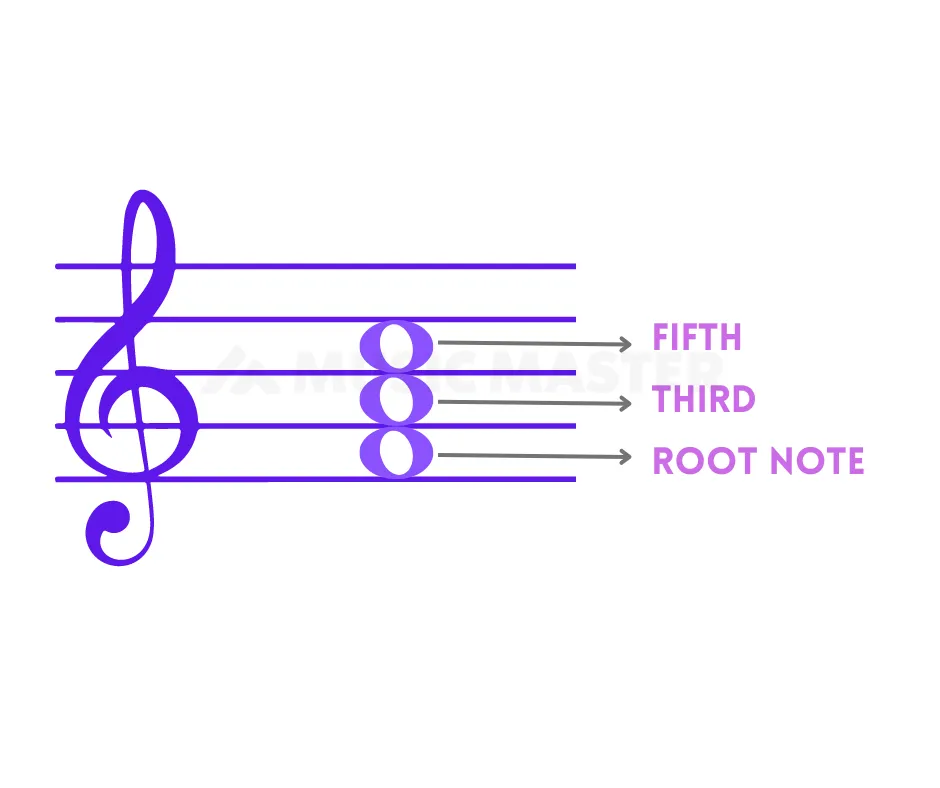
Piano Chord Guide for beginners
Its Meaning and Arrangement
We now know that a chord is a creation of three or more notes put together. A piano chord is when the same concept is applied to a piano. In other words, a piano chord is when there are three or more keys on a piano.
Basically, these piano chords can be major or minor. One can also build chords with the help of the circle of fifths.
What is Chord quality?
Everything in music has a peculiar sound! In that way, each chord has its own sound. That is what makes the concept of chords interesting. In short, the quality in which a chord actually sounds when it is played, is called chord quality. This phenomenon is based on the intervals used while forming a particular chord. Chord Qualities are denoted using some symbols. These include, Maj or min., dim., or aug, etc.
Root Note:
One of the Core elements of a chord is Root Note. In particular, Root note in a note that is used to build a chord on. It usually tells us the interrelation between the notes used in the chord. The chord gets its name depending on its root note. I will explain what exactly a root note is when we look into parts of a chord.
Before we head onto piano chords and how it is formed and all, let us look into Triads real quick.
Triads:
Triad also denotes a chord. One should write three notes vertically in intervals of third to form a Triad. Triads are also known as harmony, and it is always written in a vertical order in a staff.
As a fact of the matter, a Triad will have these three notes in that order except of course, in inversions.
Piano Chords and Their Types
Let us look on how to play piano chords for beginners and pianists of other levels.
Major Chords
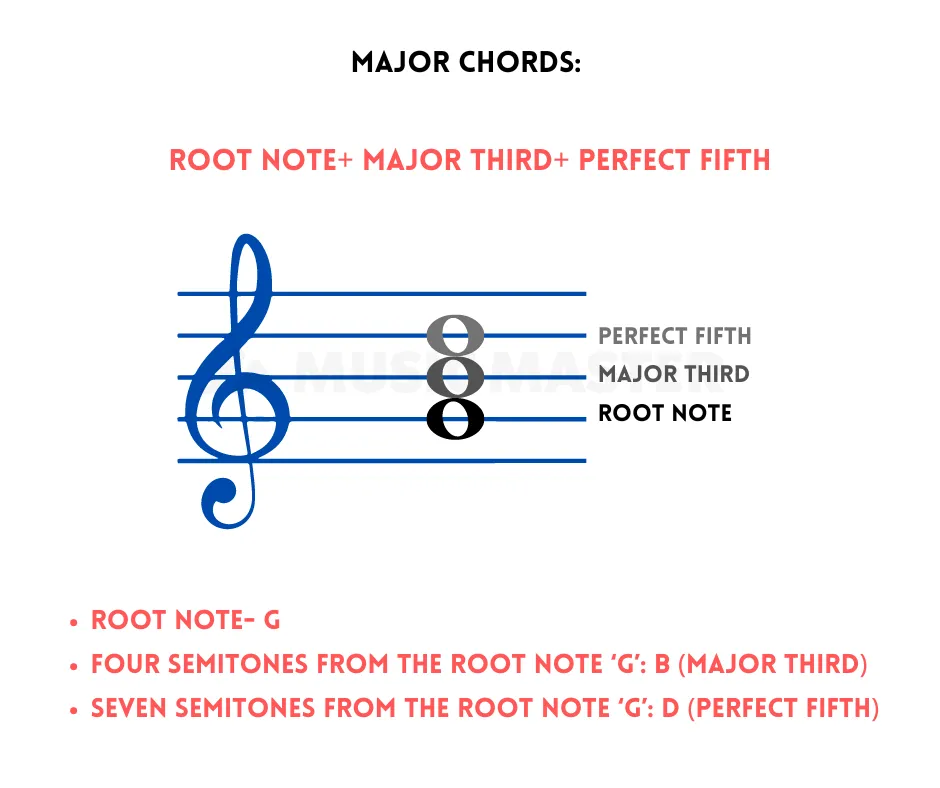
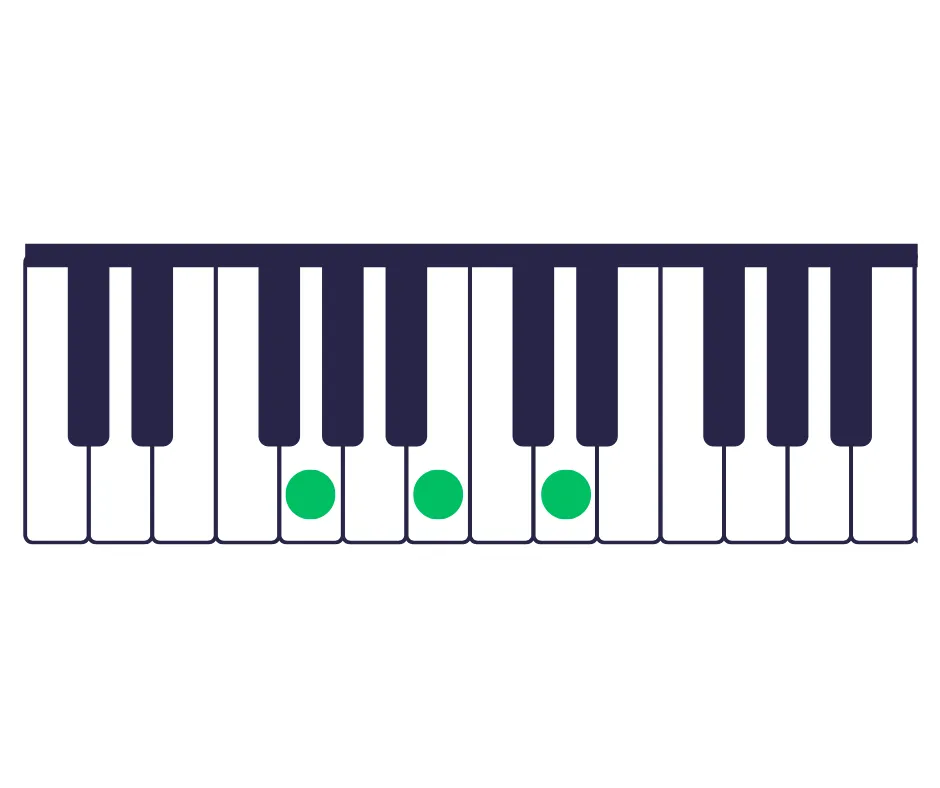
When we write chords in Major Scale, Major Chords are formed. Major Chords are chords written in Major Scale. Major chords are basic piano chords. Let us now learn Piano chords in Major scales.
When we write major chords, we need to follow a formula
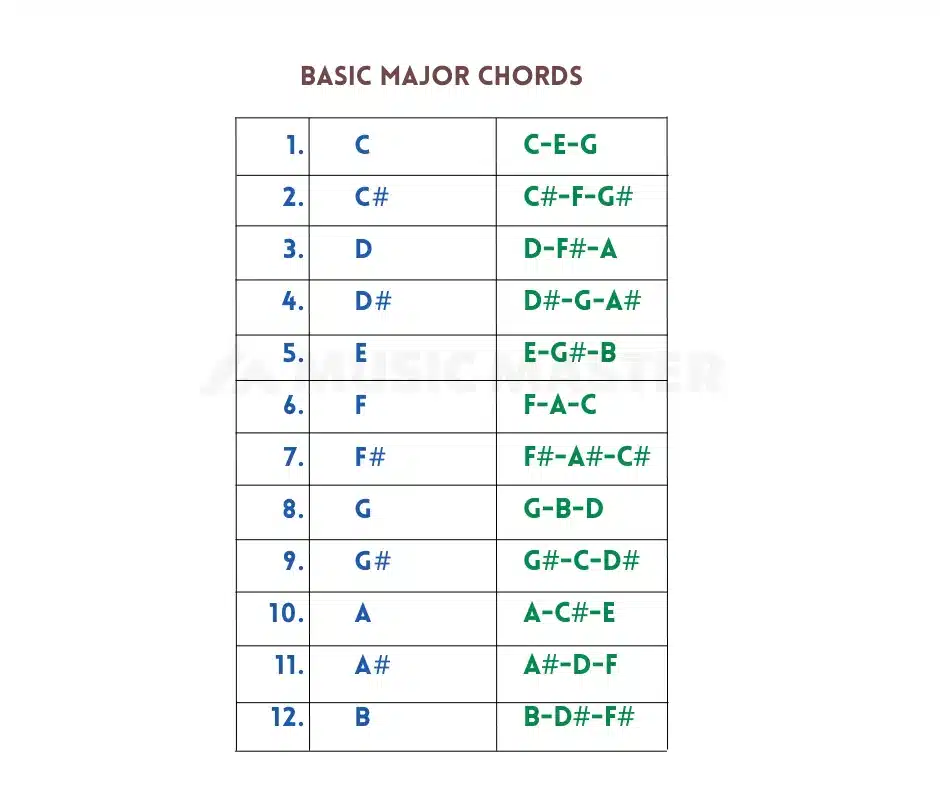
Note that the sounds produced by Major chords are happy, positively uplifting etc.
Minor Chords
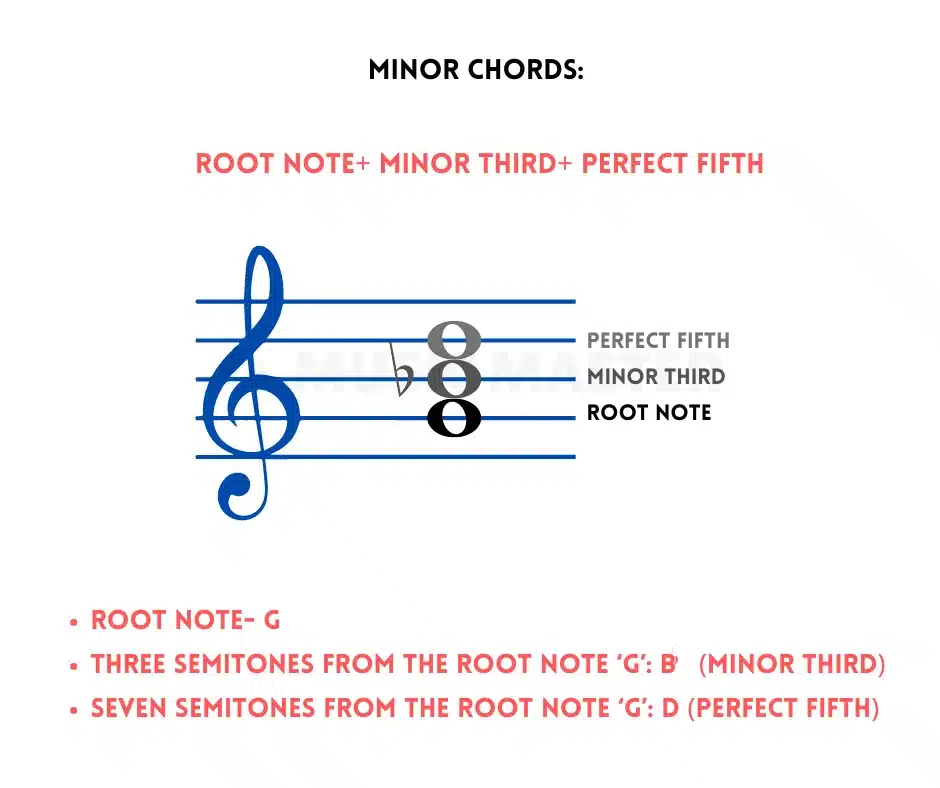
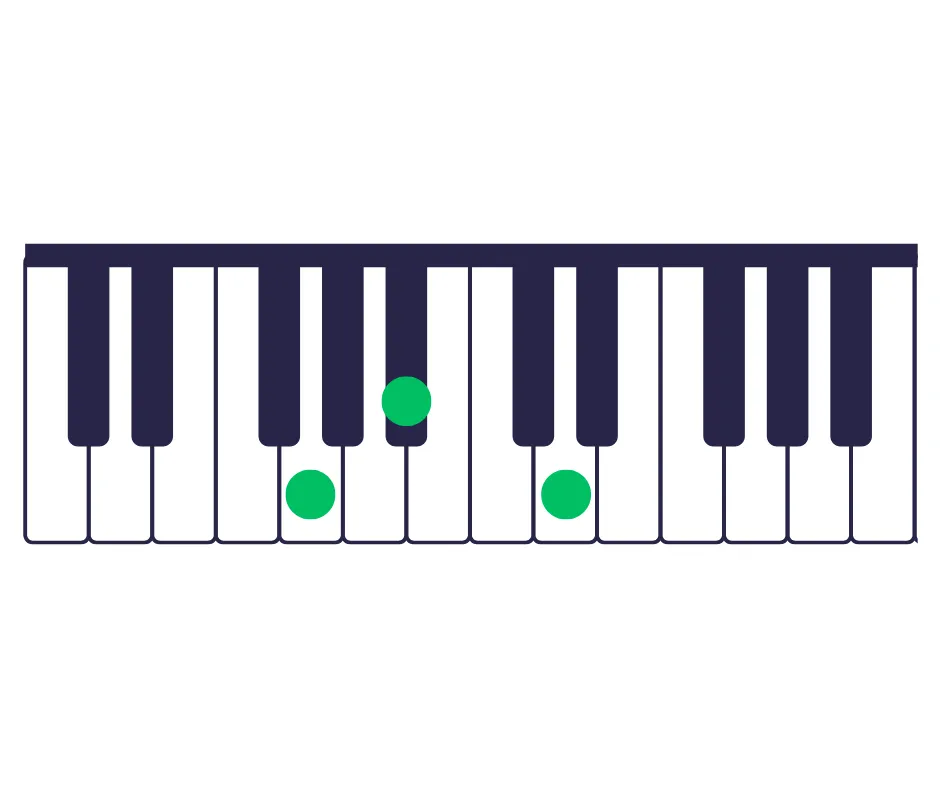
These are the same as the major chords. Minor Thirds being replaced by the major Thirds is the only change. Minor thirds are two tones and one semitone at a distance from the Root Note. It is rather easy if we learn piano chords using its formula.
To help us build the chord with ease, every chord has a basic formula.
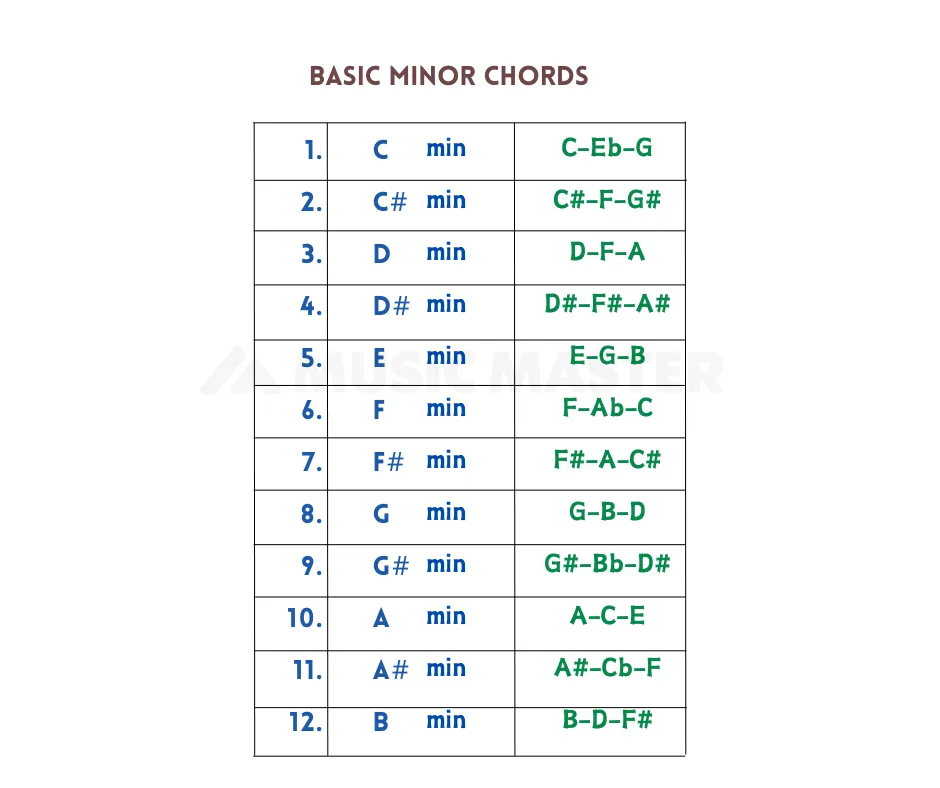
The sounding of a minor chord is quite sad, gloomy and somber.
You should check out a blog on “How to Play Piano”. It should be useful for beginners.

Did You Know?
The first piano was created by a Venetian man named Bartolomeo Cristofori.
Augmented Chords
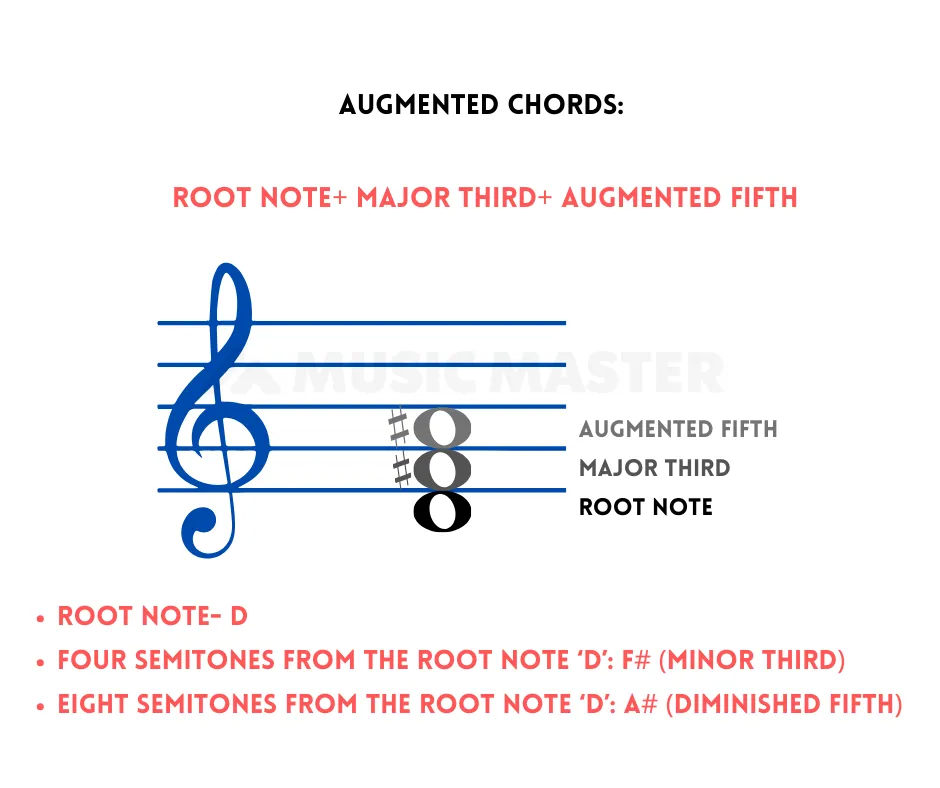
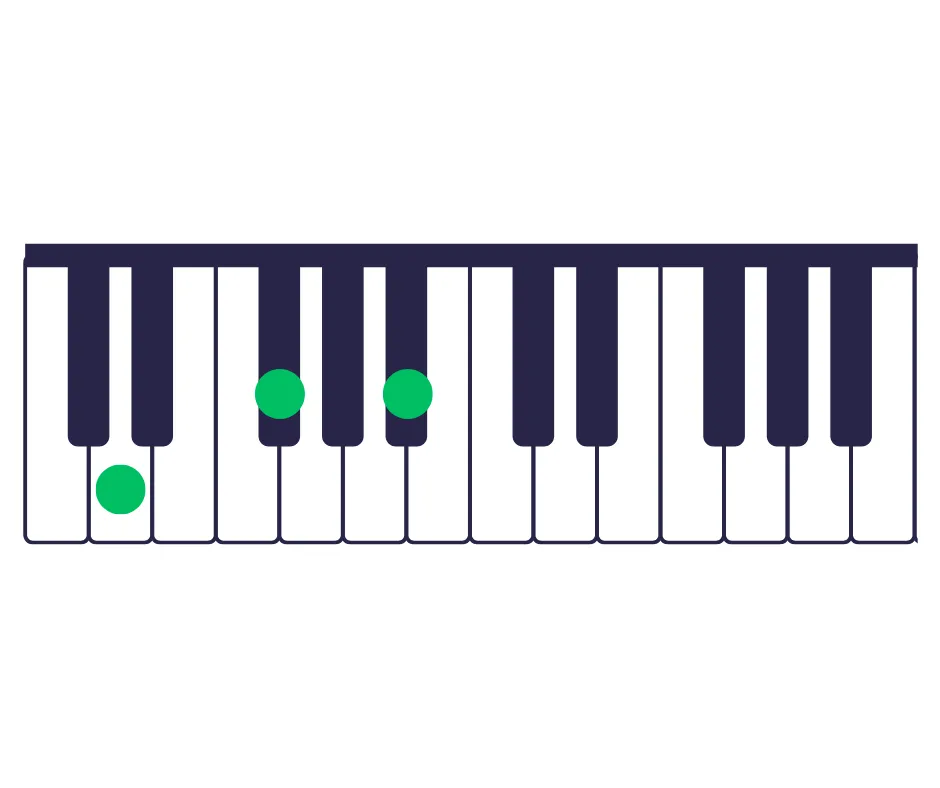
Replacing the perfect fifth in a Major chord with a sharp fifth or augmented fifth gets us a diminished chord. We get an augmented fifth just by raising the perfect fifth by a semitone. One can say that sounds created by augmented chords are rather anxious or suspenseful
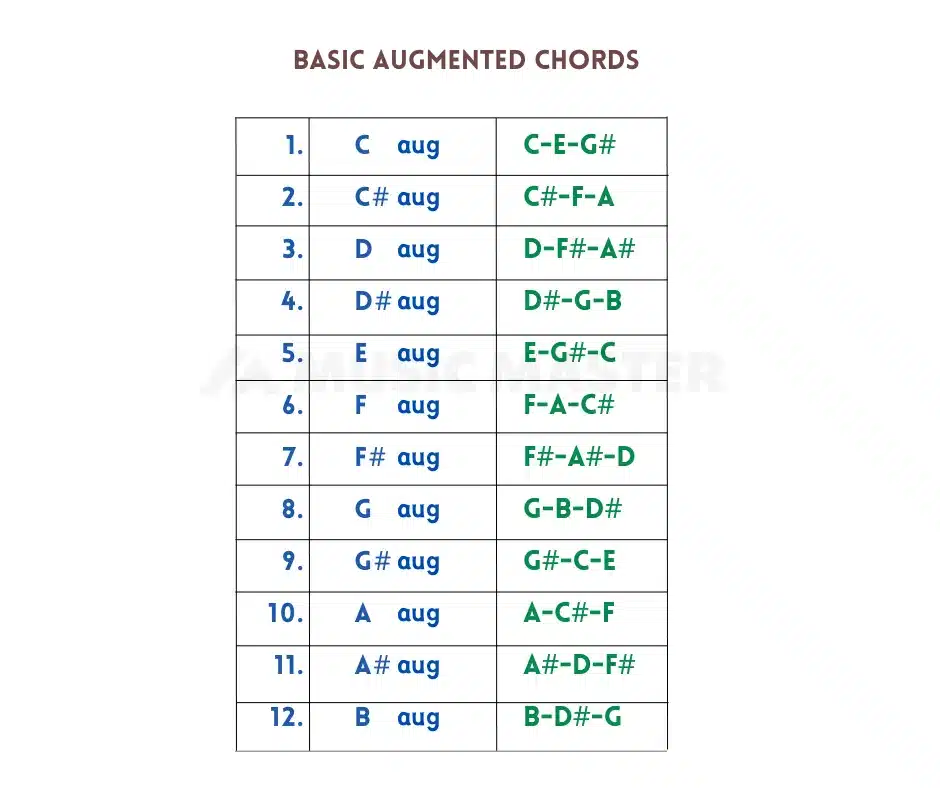
Diminished Chords
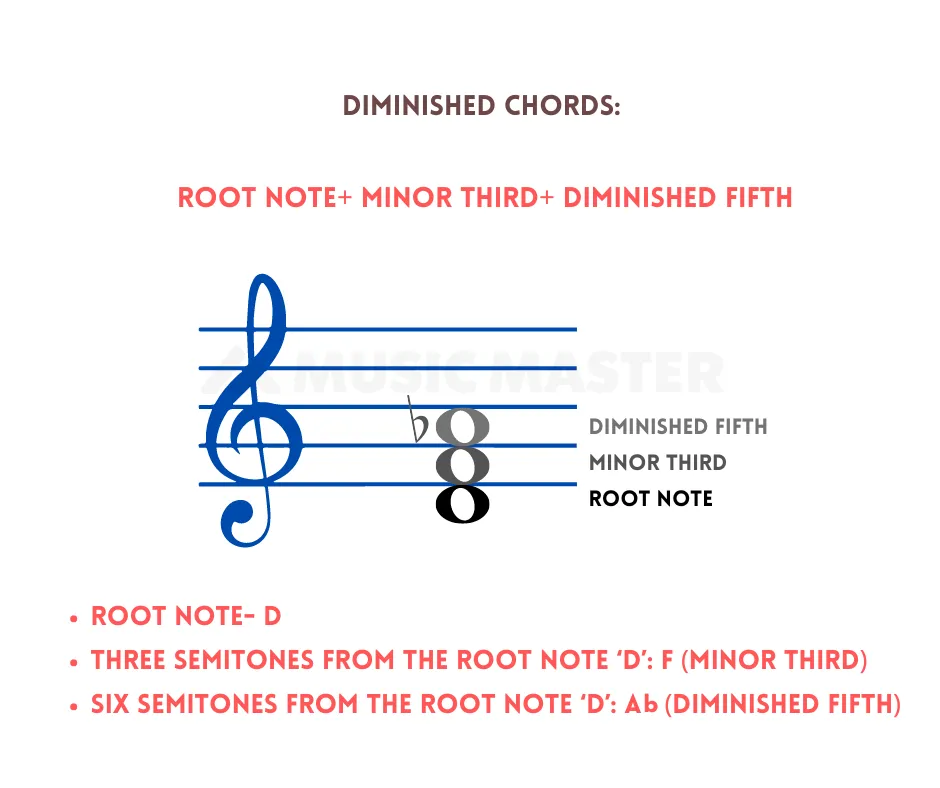
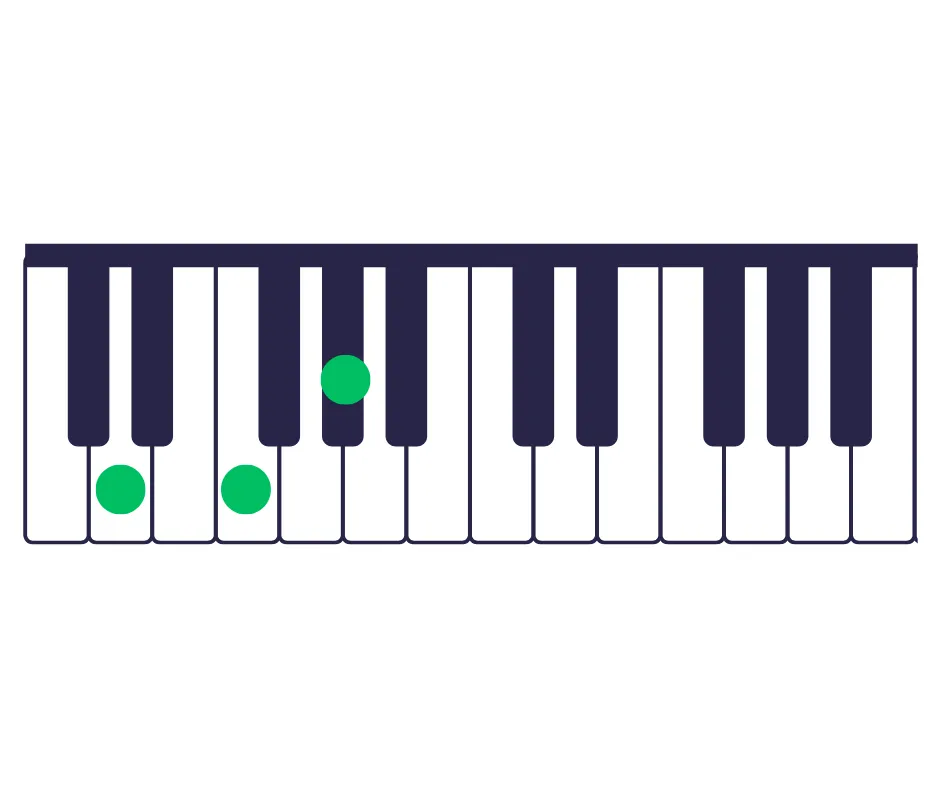
Major and minor chords are used the most, and diminished chords, not so much. Replacing the perfect fifth in a minor chord with flat fifth or diminished fifth gets us a diminished chord. These chords convey tension or unpleasantness.
For instance,
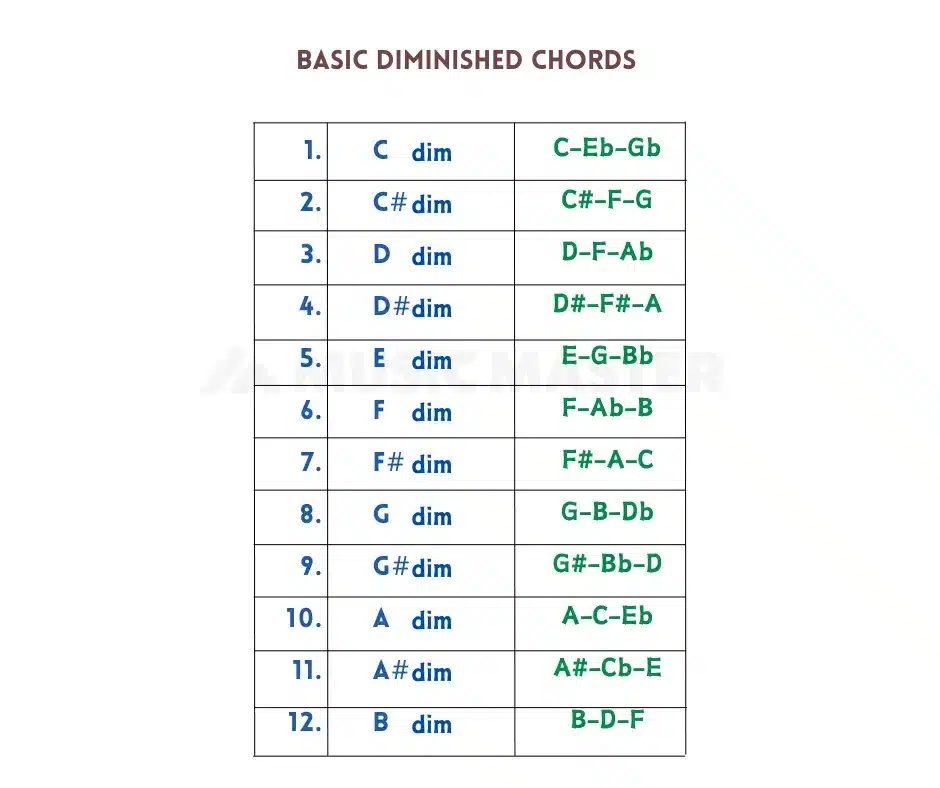

Did You Know?
There are 7 kinds of grand pianos, 3 kinds of upright pianos and 3 kinds of digital pianos. In total – 13 kinds of pianos in the world.
Seventh Chords
One note is added to an existing Major or Minor triad, to generate the Seventh chords. In simpler words, the seventh chord in piano has four notes in it. There are Major 7th, Minor 7th, Dominant 7th and Diminished 7th chords.
I have explained the seventh chords in the key of G.
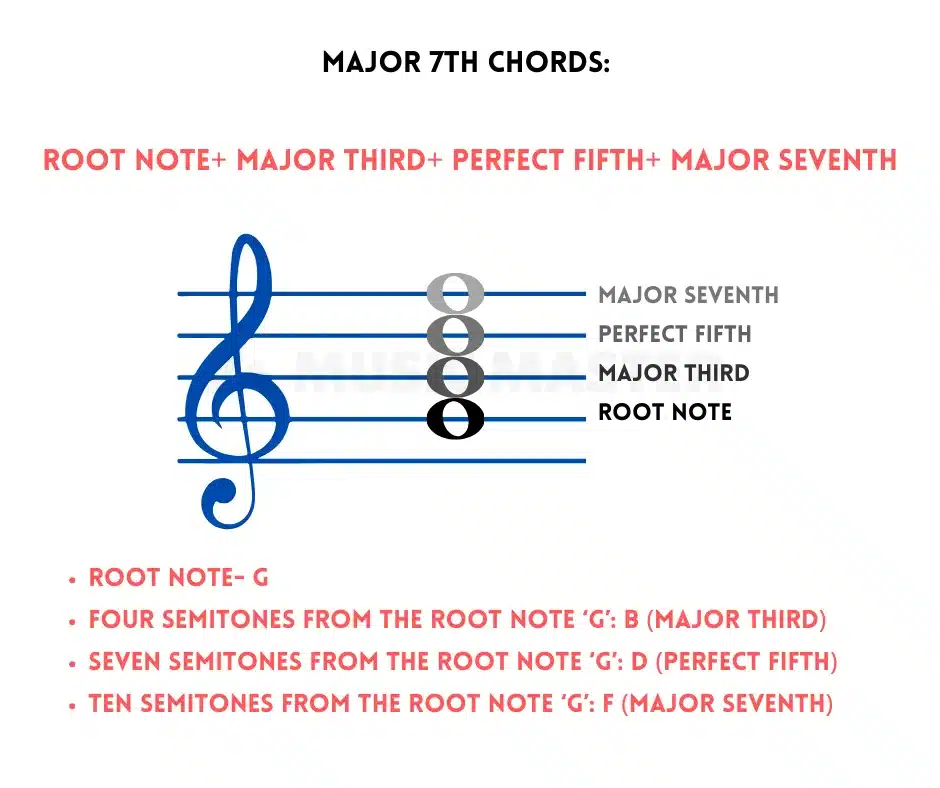
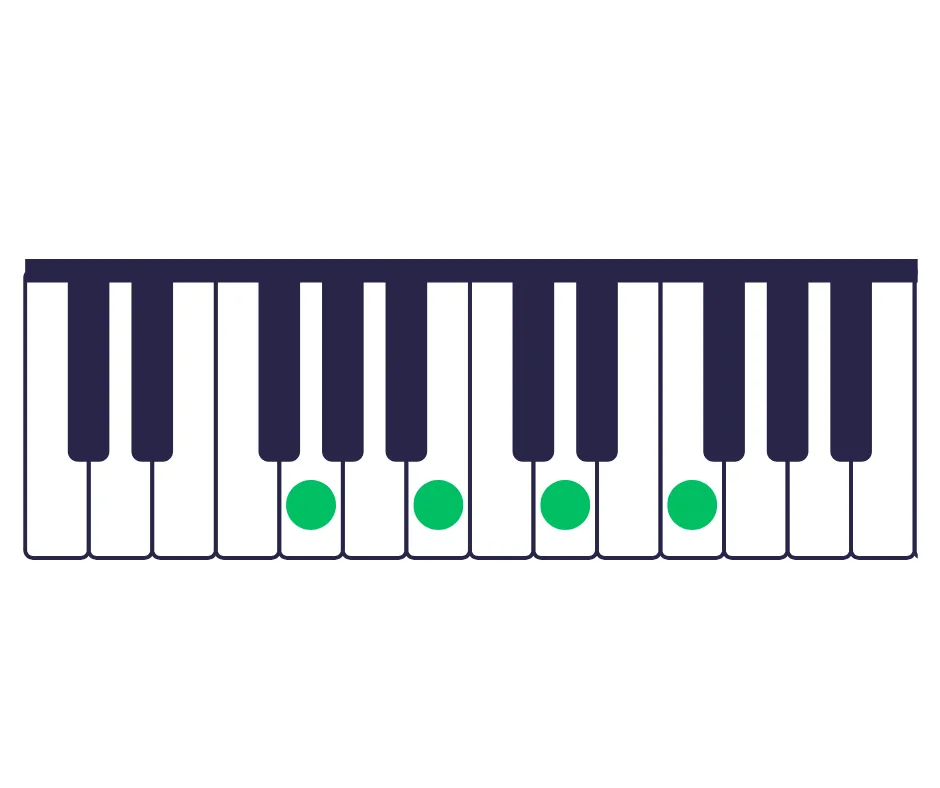
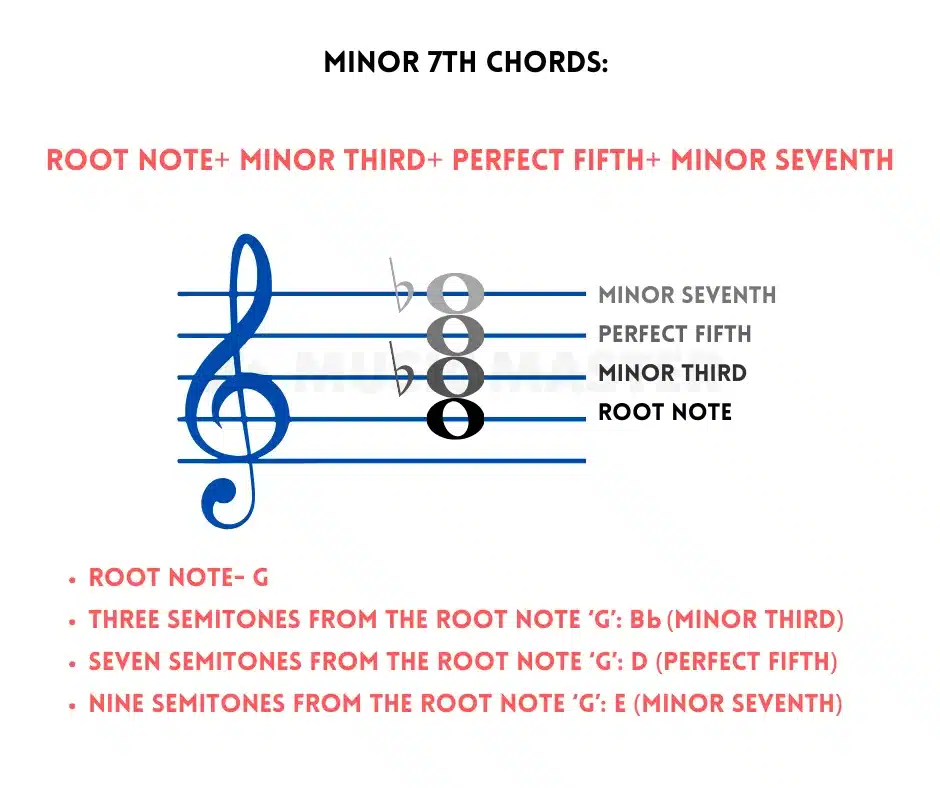
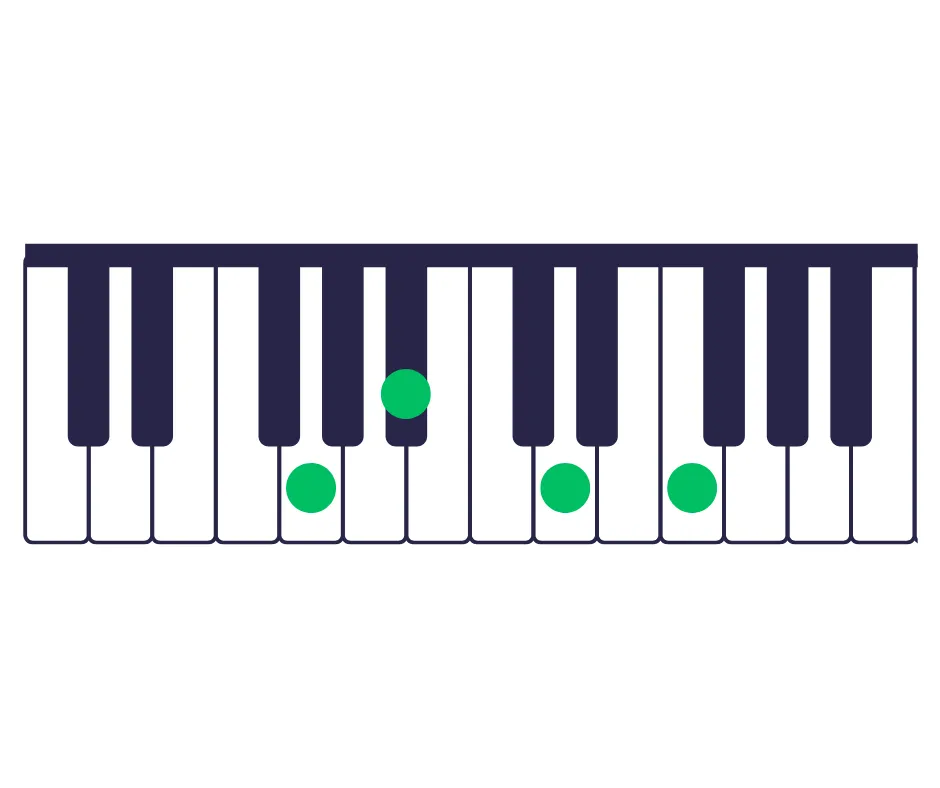
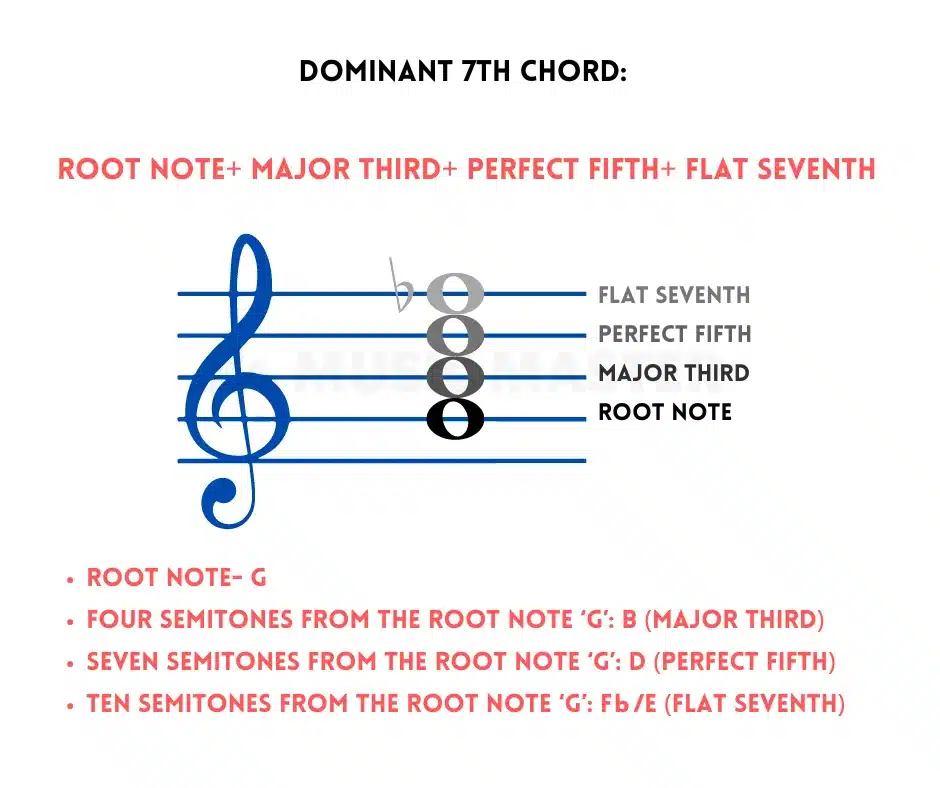
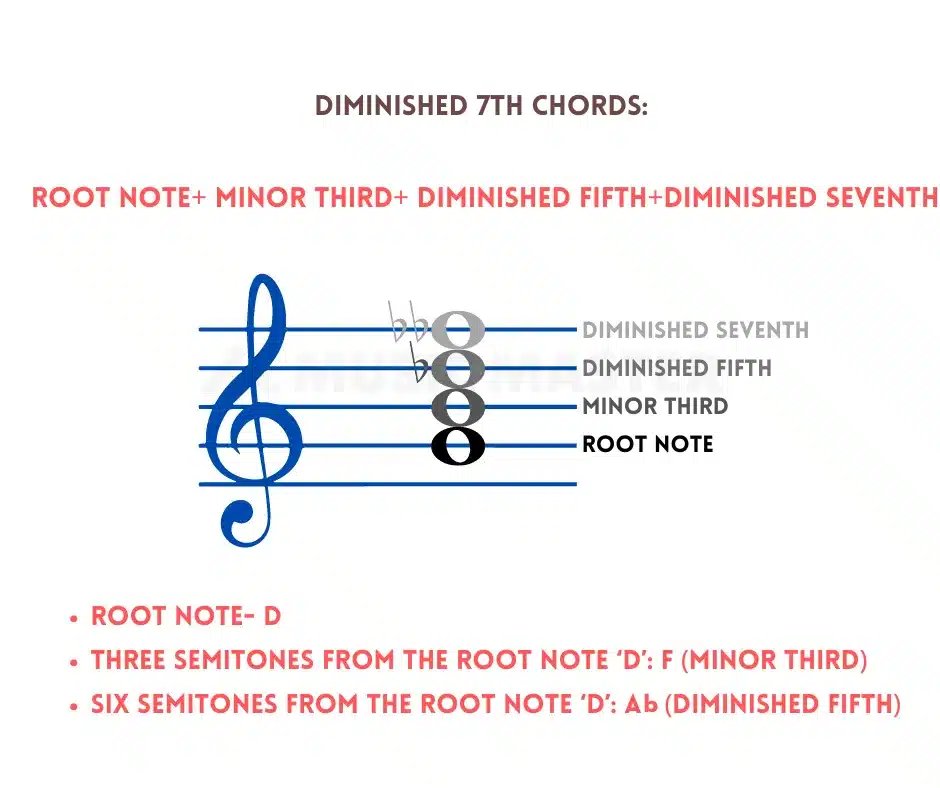
The Jazz genre is full of Major 7th chords. 7th chords are kind of a specialty of Jazz. The sound produced by the major 7th chord is described as soft, thoughtful, and relaxing. The major 7th chord is definitely softer in comparison to the dominant 7th.
Suspended Chords
Suspended chords are neither Major nor Minor kind. The usage of major or a minor third is the deciding factor if the chord is major or minor. Sus 2 or sus 4 chords replace the third note with a perfect second or perfect fourth note as shown in the example.
I have used C sus2 and C sus4 as an instance.
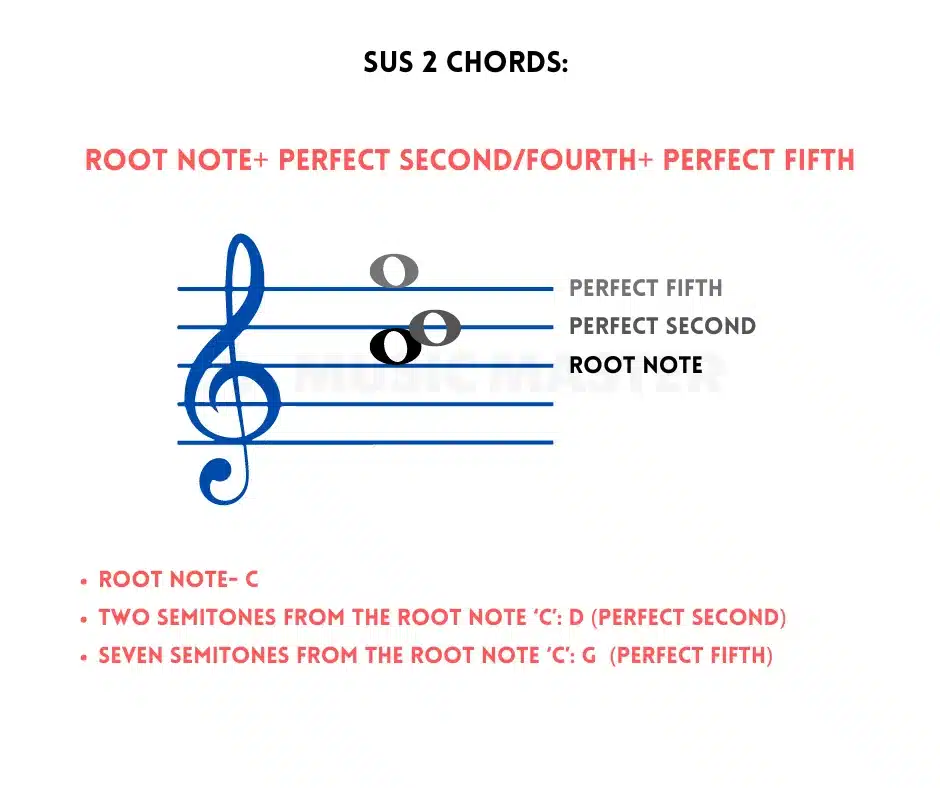
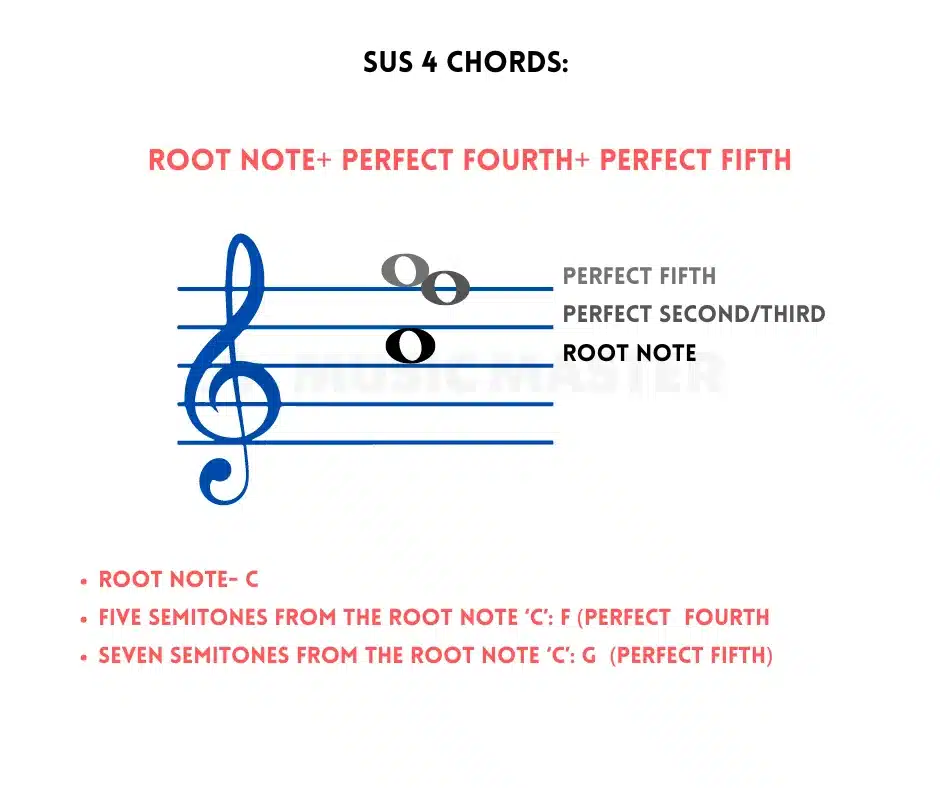
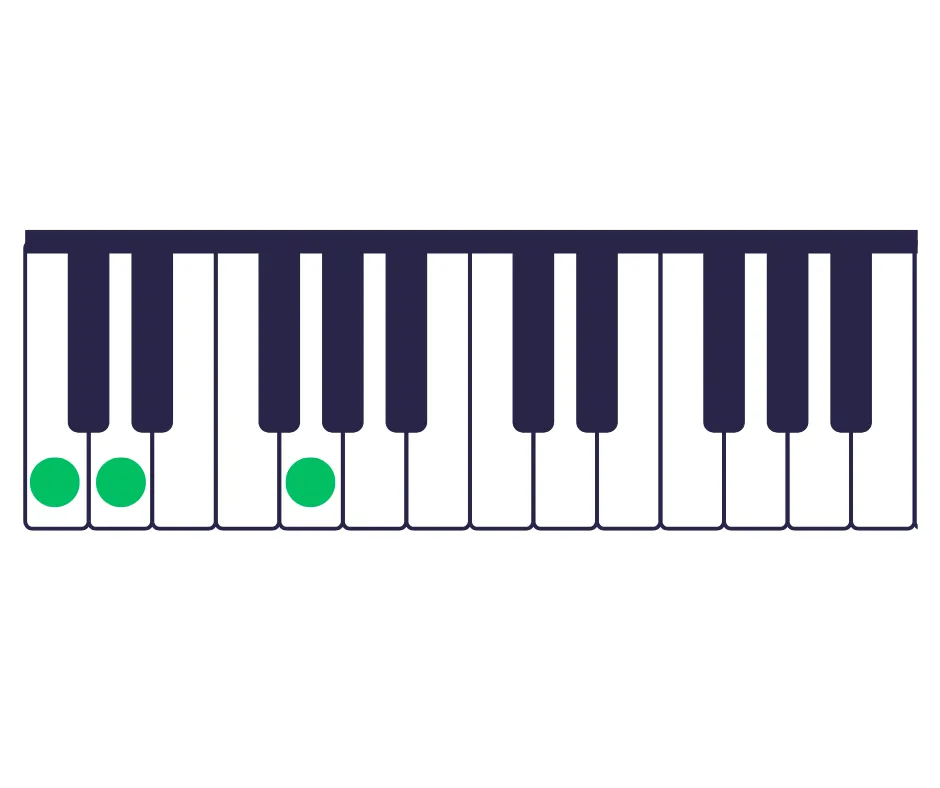
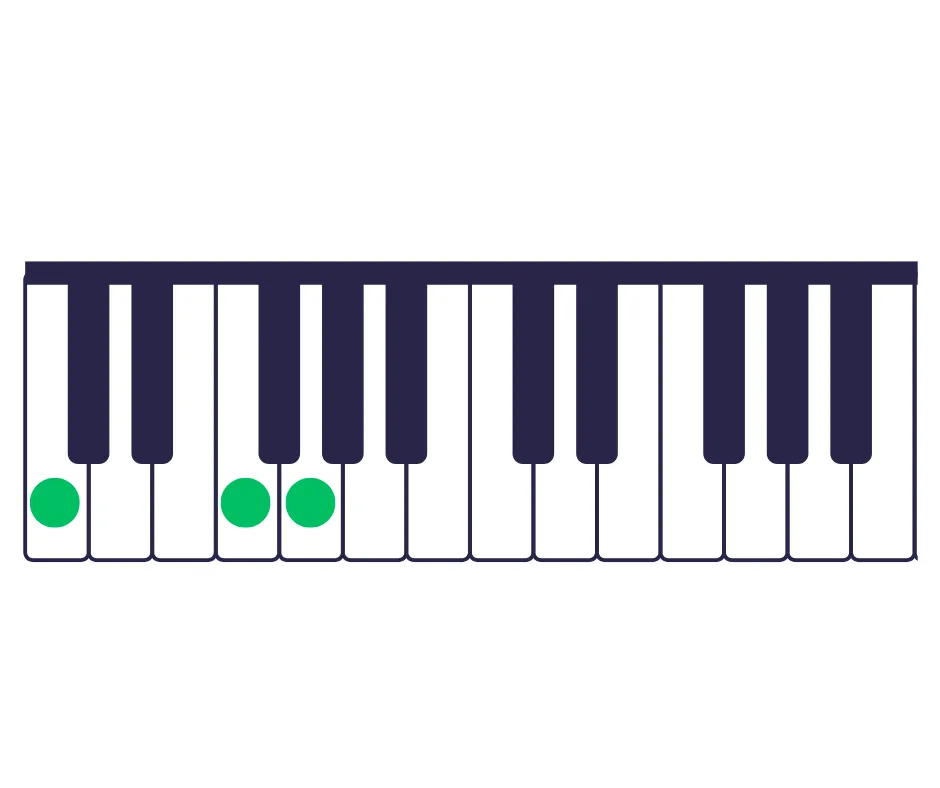
Presenting Chords Through Roman Numerals.
In music, we use Roman numerals when representing chords. Roman numerals are used for indicating the degree of this scale or the scale step of the root node of the chord. Roman Numerals are also used to define the chord quality.
The modern Roman numerals have different rules according to the type of triads for augmented triads/ augmented keys and so they use uppercase for the numerals and also add a small + next to it. Furthermore, for the diminished triads/ diminished keys, we use lowercase for the numerals and add a small circle next to them.
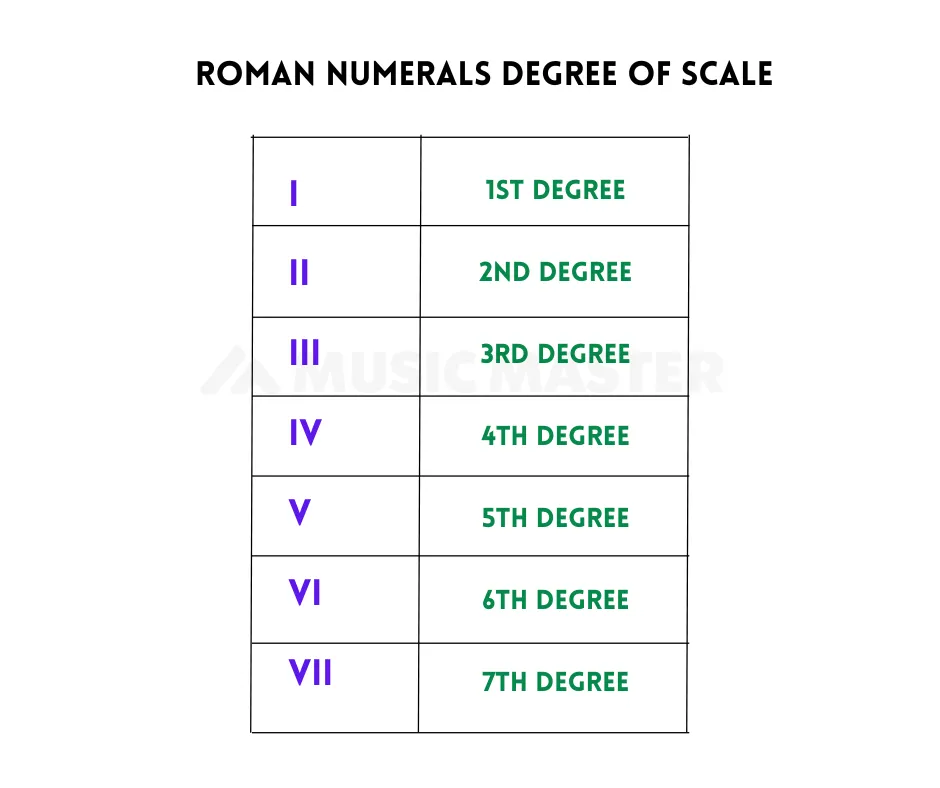
Major Keys in Roman Numerals
In major keys, we write the I, IV, and V keys in uppercase. Next, we use the lowercase to right ii, iii, and vi keys. Lastly, to write the viio key we use the lowercase and add a small circle next to it.
Let’s take the example of G major for better understanding:
Roman Numerals
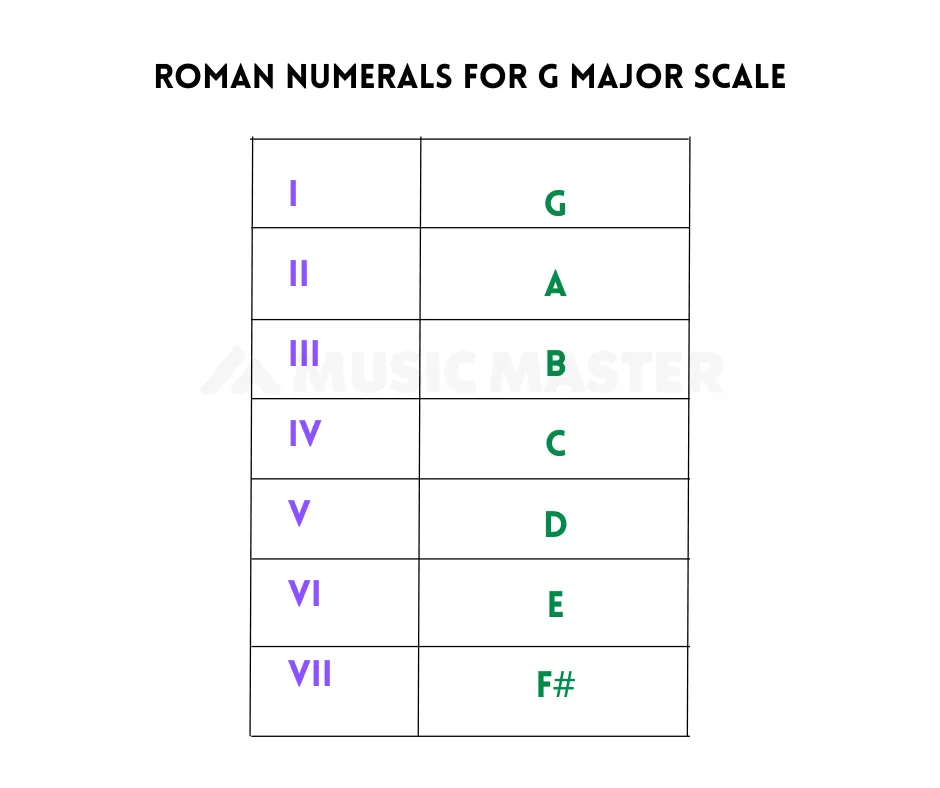
Minor keys in Roman Numerals.
In major keys, we write the i, iv, and v keys in lowercase. As a rule, we use the uppercase to write III, VI, and VII keys before them. Therefore, to write the ii o key we use lowercase and add a small circle next to it.
As we mentioned above the numerals represent the degree of the scale.
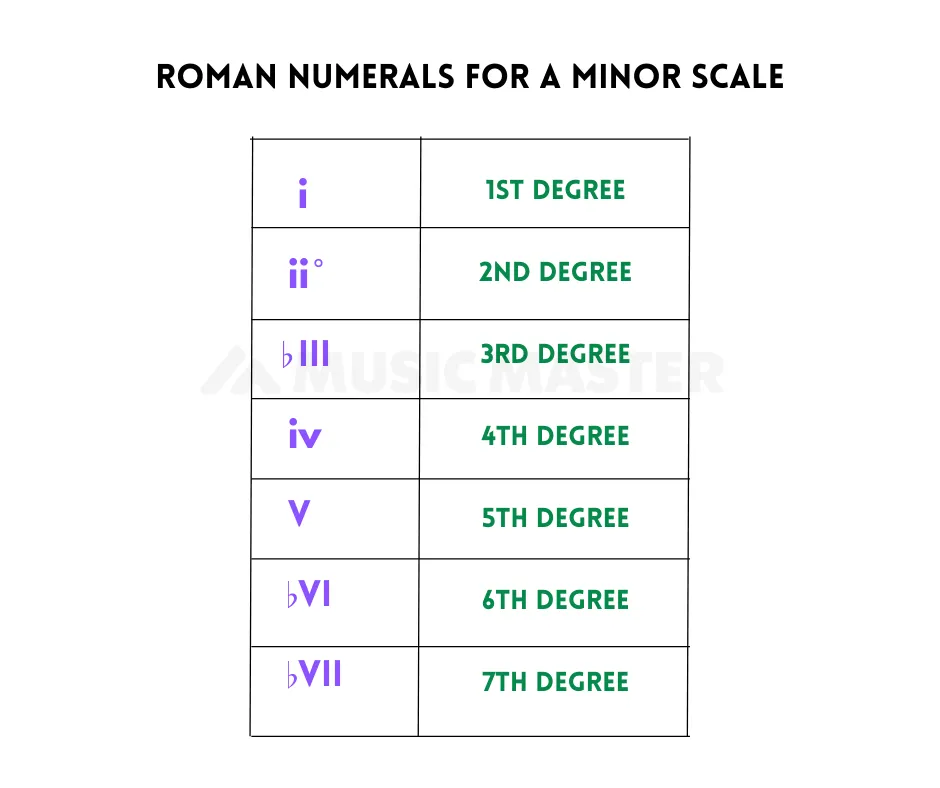
Let’s take the example of A minor for better understanding of Roman Numerals for a minor scale
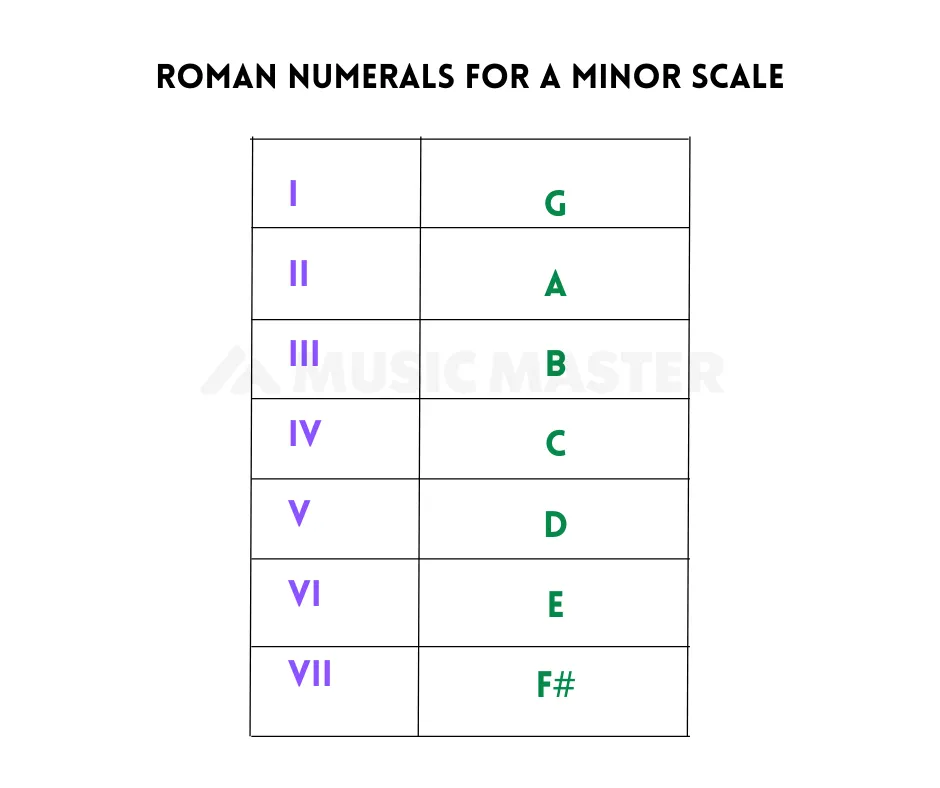
Chord Inversions
So far, we have learnt that chords have an arrangement of notes in a certain order. Chord inversion is when we particularly change the arrangement of these notes in a chord. Generally, the position of each note in a key changes in inversion. And so, the root note will no longer be the root note of the chord.
Any chord can have two inversions.
First Inversion of any chord is when the middle note becomes the bass note and the rootnote’s position changes to the top note.
Then, Second Inversion of a chord is when the top note of that chord becomes the bass note thereby changing the rootnote’s position to the middle.
Let us look at C Major Chord and its two inversions for better clarity.
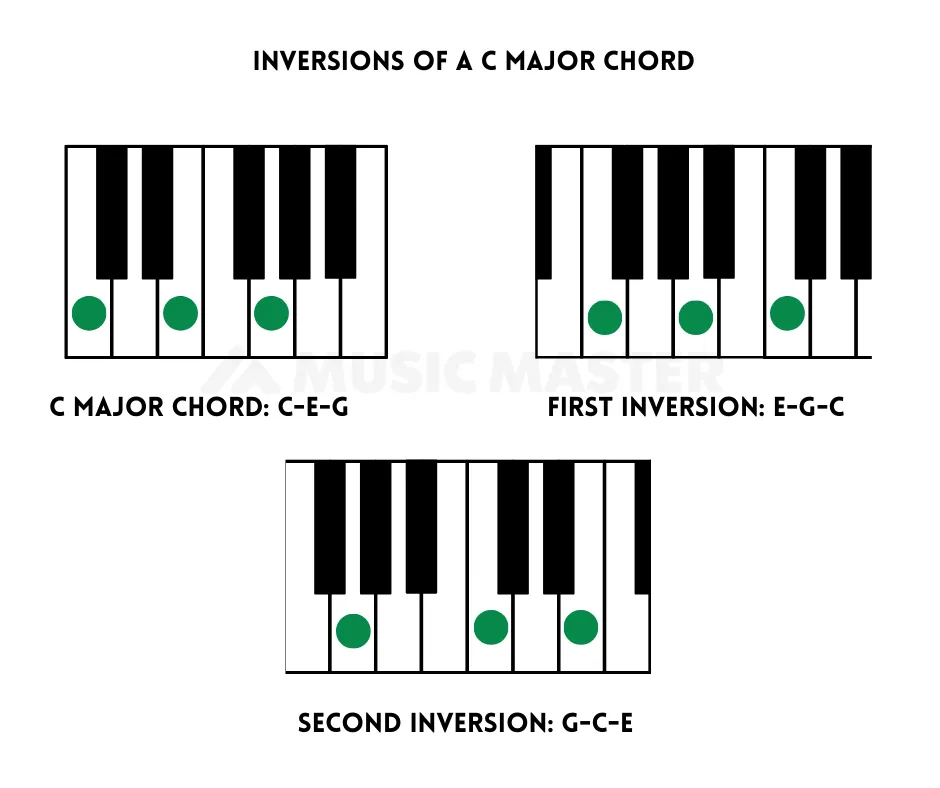
Closing Thoughts
To conclude, chords are one of the best ways for expressing emotions through music as we learned in this blog(piano chord guide for beginners) how the combination of different notes creates different chords which result in the production of a variety of sounds. On the whole, I have introduced you to a few basic piano chords with charts but there are many more such chords and so keep learning and enjoying music.
FAQs
What are piano chords?
Piano chords refers to the notes played together simultaneously on a piano.
What are the basic piano chords for beginners?
The basic piano chords for beginners will be Major and Minor chords shown above in the blog.
How many chords do I need to know to play songs?
Usually, songs will have a combination of four to five chords used. Basic major and minor chords are enough to play songs for beginners.
Are there any easy ways to learn piano chords?
Getting familiar with musical notes and keys of the piano is an excellent way to begin learning piano.
What are major and minor chords?
Major and minor chords are chords that are written in major and minor scales.
Are there barre chords in Piano?
No, the concept of Barre chords belong to guitar.
Related blog: Is piano string instrumet


